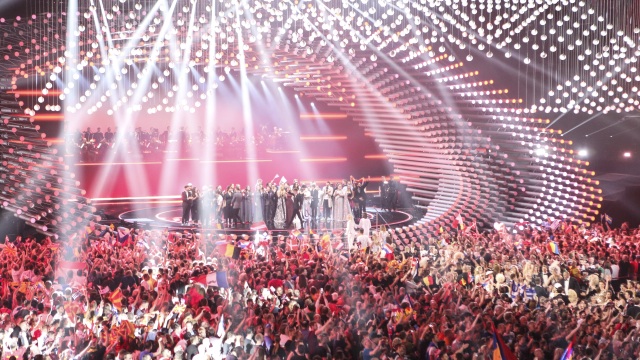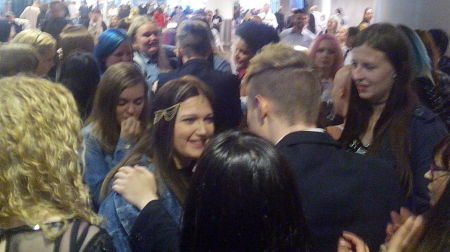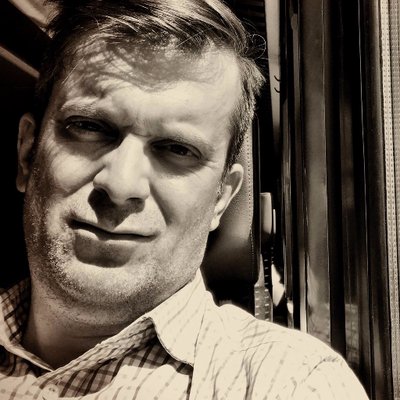It amazes me how at ease others are slipping into Eurovision mode so early on in the season.
There was a time (maybe ten years or so ago) when Eurovision Song Contest devotees listened to the line-up of songs in each country’s National Final to get their season started in January or February, which at least had the advantage of being in the same calendar year as the Grand Final.
That’s no longer enough. Free on-demand content made available by all the Song Contest broadcasters makes getting your pre-Eurovision fix a relatively straightforward process. Internet distribution helps sate the appetite of a previously under-served audience. Over time the mechanics of the Contest have become must-see entertainment too. As a result, the Eurovision season has expanded.
I resist it. I’ve never wanted to rush the season. No one wants to come to a climax before the main event.
That strategy stems from the songs. Three contrived minutes designed to transport you to an entirely different plane and, depending on the skill of the songwriter and performer, return gently back down to earth. That sort of musical excursion is addictive. Beware the endorphin rush that follows your chosen musical poison – the body does eventually get accustomed.

Adrenaline given human form, Vienna 2015 (image: EBU/Thomas Hanses)
Avoiding Eurovision Is My Defence Mechanism
In the digital arena’s infancy, behind-the-scenes footage was the must-have for mainstream content producers eager to populate the new and comparatively sparse online platform. Endless videos illustrated the mechanics of television. Forums, blogs, chat rooms, and social media unwittingly powered conversations that saw all of us flirt with the idea of being an indispensable part of the thing we all loved unconditionally.
It still does. It remains a dangerous drug. Be wary.
So, is my leaving Eurovision until the latest possible point a way of avoiding peaking too early, or steering clear of the banal?
Getting hooked up to the Song Contest backbone is the equivalent of turning up in the kitchen when the chef is on the phone ordering the ingredients from the supplier. I don’t really want to be there for the delivery of the order, the binning of the disappointingly rotting produce, nor prepping the vegetables. Let other people do that. I’ll just stand at the pass and marvel at the final creation.
Others, I recognise, are very different. That’s what has consistently made the Contest a valuable eye-opener over the years for me.
Take Lisa-Jayne’s brilliant post about Eurovision start times and why they need to change. A thorough investigation providing insights I hadn’t even realised I wanted or needed to know. I look on such work with a mixture of awe and good-hearted fear. I don’t get anywhere near as engrossed in the Song Contest until the final few weeks. To do that now seems way too early.
Committed ‘proper’ fans (by proper, I mean those who have worked hard to call themselves such, those who know more, and dedicate more of their life to it than I) sit expectantly with mobile phone in their hand or fingers clasping their mouse, waiting for announcements that confirm each broadcaster’s participation in, trial separation, or bitter divorce from the Contest.
This is lore: loyal fans follow the Contest in all its excruciating detail, immersing themselves in the rumour, speculation, or gossip.

Once Eurovision fans, always Eurovision fans. Jedward’s love for Eurovision rubs off on those who may have lost contact through their teenage years (Photo: Ben Robertson)
Friends of mine who work in PR are wary about this. They interpret this kind of passion and commitment as emanating from a vocal and often critical audience, as something that will unseat a well-thought-out plan.
They are right to be afraid. It’s exactly that energy that has in part kept the thing alive. The world of the Eurovision Song Contest is not the place for a mistimed message, nor one that needs to be controlled, restrained, or put to sleep. One false step and disaster could befall you.
In that way, the community lives in a riotous space. Step inside with sturdy boots, an already skinless nose, and shoulders that shrug as reliably as Alan Partridge’s during an uncomfortably boozy lunch. In that respect, Wogan wasn’t wrong when he described it as a ‘bun-fight’.
Controlling Your Emotions
My wariness of entering the Eurovision world so early in the season may well be because I know my weaknesses.
I can get myself in-deep emotionally quite quickly. The first time I attended (Riga 2003) I was exhausted for a fortnight after it was over. Colleagues at work kept asking me “Are you sure you had a good time?” Wide-eyed and embarrassingly naïve, that exhaustion was the direct result of the extent to which I invested emotionally. Eurovision is a vicious and sadistic taskmaster. Read the warning on the back of the packet: this stuff is dangerous.
But I wonder now whether I envy those who invest so early on in the process.
Maybe my strategy to maintain a healthy distance on proceedings is duff. Maybe those able to casually browse through the early announcements this early on in the season have got things just right. To willingly immerse yourself in the process so early on at the same time as steering clear of the emotional turmoil of the Contest-at-Large is an enviable thing.
Knowing the drug is better than denying yourself.
Isn’t it?
(c) Jon Jacob, thoroughlygood.me.










While I don’t see eye to eye on most things to do with Eurovision (in all forms), with you. I have to hand it to you, with the clever puns in this article.
For me, as an ultra hardcore fan of Eurovision, it’s a slow release. From about a week or so after the grand final until September 1st (as it’s our answer to New Year’s Day for Eurovision), I’m on a break. Unless it’s a song that I really like or the odd news article. Once September 1st comes around, it’s a slow build up. Once Boxing Day is here, then it’s full throttle all the way till March and the last day of the national final season is finished. Then until my birthday (on the 29th of April) it’s time to just sit back and keep very close tabs on the content. Then once everyone is on the ground, for those 2 weeks, it’s like I am someone with OCD.
Then it’s back to square one.
It’s all about a slow uptick and then at the appropriate time, you go up a gear, until the very end.
For me, national final season has a totally different feeling to Eurovision. The winning songs have a totally different context to Eurovision – even the Swedish entries that might barely differ in staging between Melfest and Eurovision. Songs that are internally selected can go from being dull in the studio version to coming alive at Eurovision – or vice versa.
But having said that, there is still part of my that would like try avoiding everything right up until Eurovision itself. But I don’t think I have the self control!
I was like that once…
Able to just keep a distant eye on what was happening, only really getting involved in April and May…
Then I started writing my blog and you can guess the rest! 24/7 and about 11/12 months of the year…
Looking for new experiences all the time…
Oh yes I’m hooked!
I get emotionally connected when the songs are known. I watch 1 maybe 2 national finals and than listen to the winning song when chosen. Once the Eurovision version is out,than I can make an opinion. I don’t find it necessary to listen to all songs on a national final.
By the time of Eurovision itself, I’m totally hooked and read as much as I can and share my comments on the subject.
On the other hand,there are Eurovision sites I follow through the year, ESCInsight is one of them, because those sites have content that appeal to me and is interesting and this article is an example for.
While you don’t want to be part of the long Eurovision season, your article just do that.
At the end it’s a question of finding the right balance.